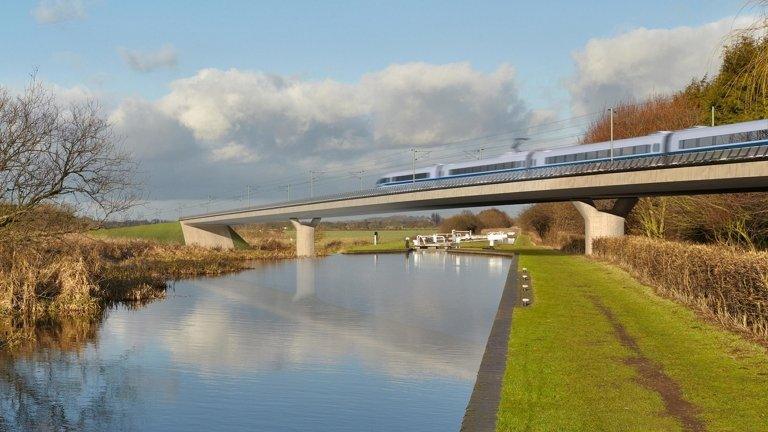HS2 high-speed rail benefits dwindle as costs soar - MPs
- Published
- comments
Stop HS2 campaigner Joe Rukin: "There's no business case, there's no environmental case and there's no money to pay for it"
The estimated benefits of the planned HS2 high-speed rail link are dwindling as costs rise, a group of MPs has said.
The Public Accounts Committee said the Department for Transport was failing to present a "convincing strategic case".
The committee added that it was instead based on "fragile numbers, out-of-date data and assumptions which do not reflect real life".
Transport Secretary Patrick McLoughlin insisted the case for HS2 was "absolutely clear".
Existing routes
The committee said there was no evidence the line would help the growth of regional cities and would instead draw even more business to London.
A target of getting the required legislation in place by 2015 was unrealistic, the MPs added.
"Convince me," Public Accounts Committee chair Margaret Hodge tells the transport secretary
The committee also wanted to know how quickly the department would fill gaps in commercial and major project expertise among its personnel.
They said out-of-date assumptions for the high-speed line included not taking into account that people could work on trains using laptops and other mobile devices.
Committee chairwoman Margaret Hodge said: "The pattern so far has been for costs to spiral - from more than £16bn to £21bn plus for phase one - and the estimated benefits to dwindle."
She told BBC Radio 4's Today programme the committee needed to be convinced of the economic case and given a better understanding of how the costs would be kept under control and how the government was to make sure the project was delivered on time.
"Everyone wants better transport infrastructure and we all welcome investment in our railways," she said.
"But the question my committee wants to ask is - if you have £50bn to spend on the railways, should you be spending it here?"
She said the money would be better spent easing congestion on existing routes by introducing longer trains and building longer platforms.
Mr McLoughlin rejected the PAC's findings and said without HS2 key rail routes would be "overwhelmed" by rising passenger numbers.
Maria Eagle said critics of HS2 plans do not have a viable "alternative"
"The project will free up vital space on our railways for passengers and freight, generate hundreds of thousands of jobs and deliver better connections between our towns and cities," he said.
He told BBC Radio 4's Today programme that the department was continuing to work on the figures, and billions of pounds were already being spent on improving existing routes.
"The truth is we can't not do anything," he said.
"If we are going to be able to compete globally, we need to be able to attract businesses to our cities. To attract businesses to our cities, there need to be good connections and that is vitally important for the future of this country long term."
He pointed to a 2011 report from the Transport Committee, external, which found there was a "good case" for the project "principally because of the substantial improvements in capacity and connectivity that it would provide".
'Plough ahead'
The government will publish its own report this week arguing that HS2 will generate billions of pounds for the economy.
BBC transport correspondent Richard Westcott said the committee's conclusions were the latest in a long line of criticisms of the project.
Official estimates of the cost were increased by £10bn to £42.6bn earlier this year and there is opposition to HS2 in many communities along the proposed route.
The Treasury's top civil servant, Sir Nicholas Macpherson, has said there is "no blank cheque" for HS2 and the National Audit Office has warned the economic benefits of the project are unclear.
The high-speed line would run between London and Birmingham from 2026 before being extended to Manchester and Leeds from 2033.
Hilary Wharf, director of campaign group HS2 Action Alliance, said: "We have no doubt that the government will continue to plough ahead with HS2 despite PAC's devastating criticism - that there is no convincing strategic case and out-of-date information and wrong assumptions were used which do not reflect real life.
"How much longer do they think the tax payer will listen to their protestations that this £50bn white elephant is vital to the future of the UK's economy?"
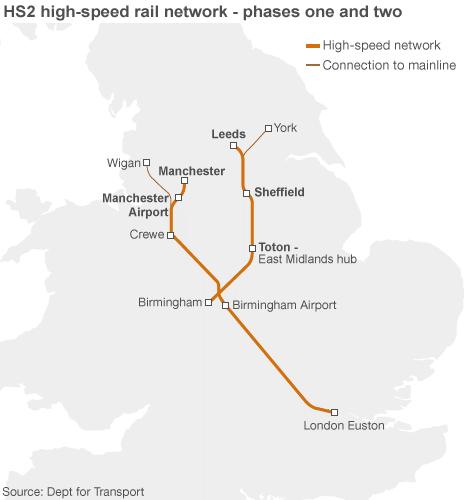
- Published8 September 2013
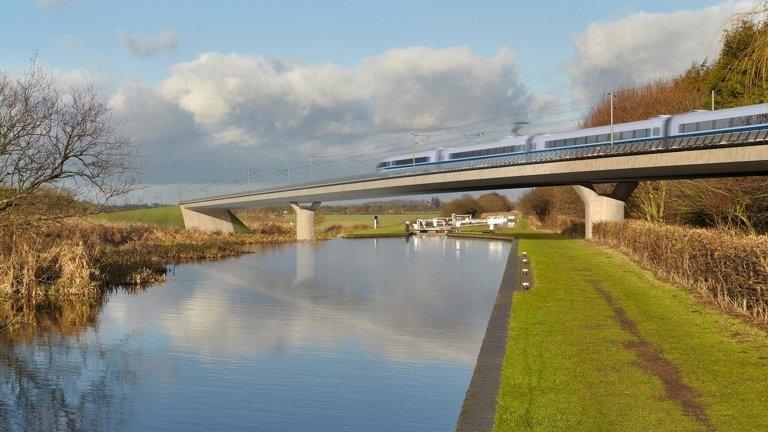
- Published8 September 2013
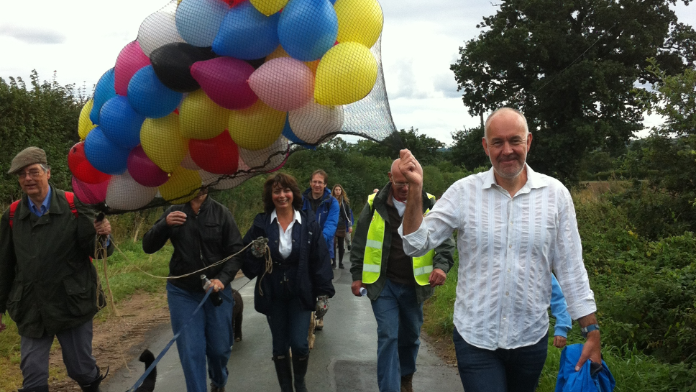
- Published1 September 2013
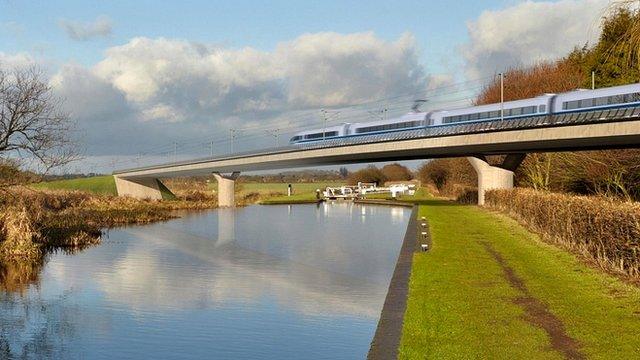
- Published27 August 2013
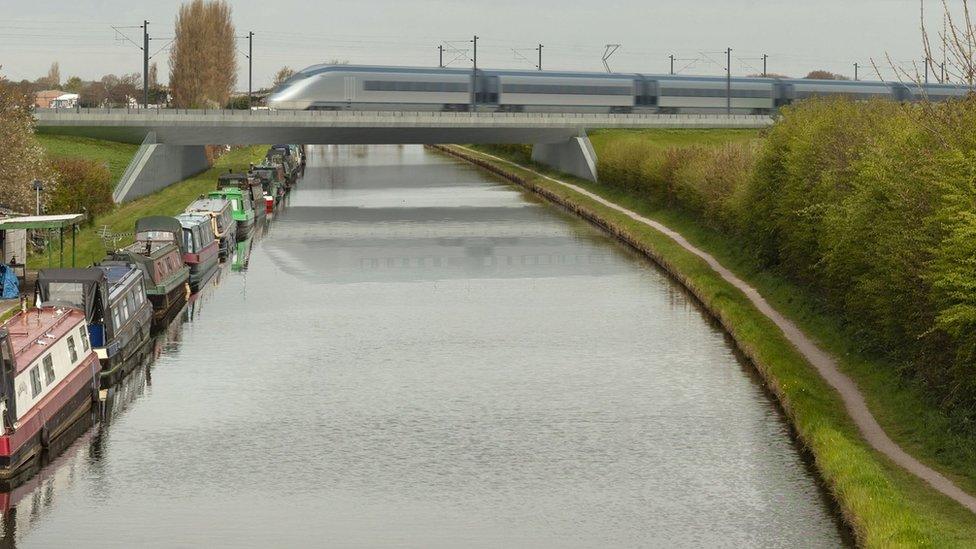
- Published24 August 2013

- Published23 August 2013

- Published6 October 2023
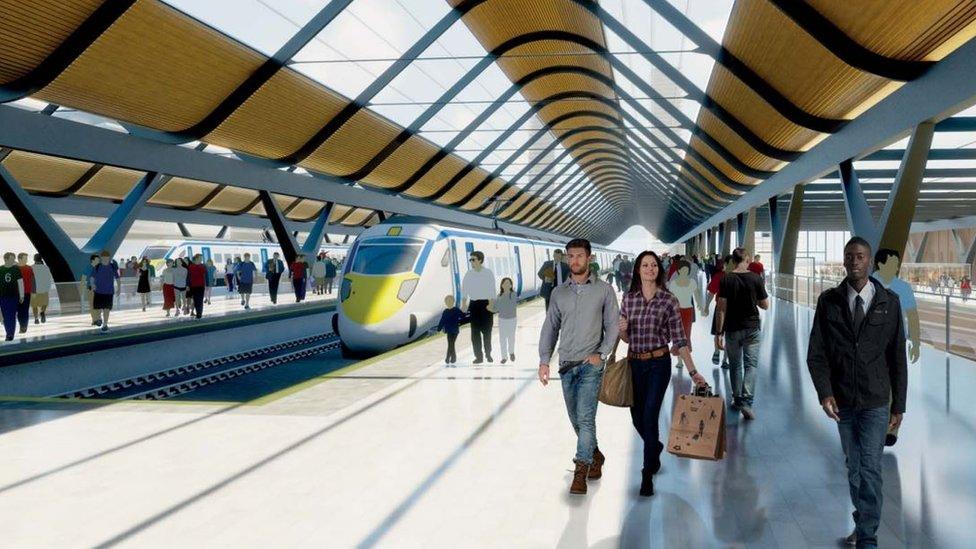
- Published16 May 2013
